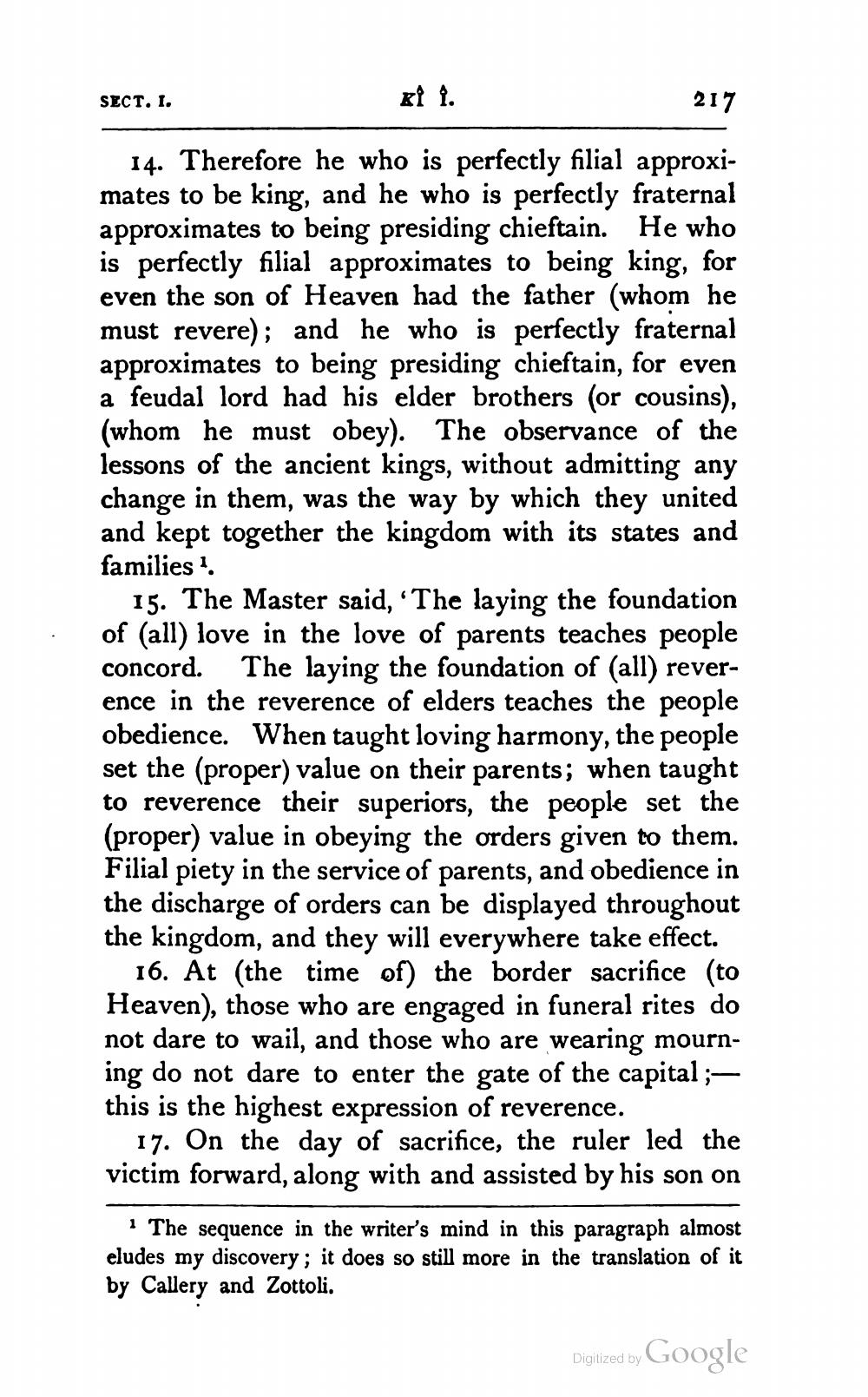________________
SECT. I.
ki i.
217
14. Therefore he who is perfectly filial approximates to be king, and he who is perfectly fraternal approximates to being presiding chieftain. He who is perfectly filial approximates to being king, for even the son of Heaven had the father (whom he must revere); and he who is perfectly fraternal approximates to being presiding chieftain, for even a feudal lord had his elder brothers (or cousins), (whom he must obey). The observance of the lessons of the ancient kings, without admitting any change in them, was the way by which they united and kept together the kingdom with its states and families 1.
15. The Master said, 'The laying the foundation of (all) love in the love of parents teaches people concord. The laying the foundation of (all) reverence in the reverence of elders teaches the people obedience. When taught loving harmony, the people set the (proper) value on their parents; when taught to reverence their superiors, the people set the (proper) value in obeying the orders given to them. Filial piety in the service of parents, and obedience in the discharge of orders can be displayed throughout the kingdom, and they will everywhere take effect.
16. At (the time of) the border sacrifice (to Heaven), those who are engaged in funeral rites do not dare to wail, and those who are wearing mourning do not dare to enter the gate of the capital ;this is the highest expression of reverence.
17. On the day of sacrifice, the ruler led the victim forward, along with and assisted by his son on
1 The sequence in the writer's mind in this paragraph almost eludes my discovery; it does so still more in the translation of it by Callery and Zottoli.
Digitized by
Google




